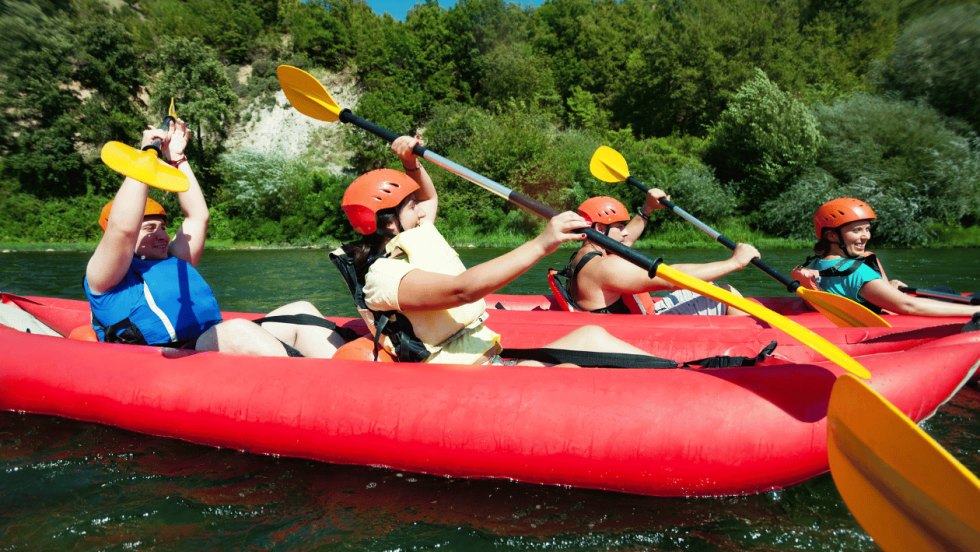River Safety

Paths run alongside many of Oxfordshire's waterways. They are used every day of the year for active travel and leisure, as well as fishing, boating, and just hanging out with friends.
Being by water and waterways is known to boost mood and increase wellbeing. But it is important to take care.
Safety near water
Accidents are rare on Oxfordshire's waterways but do happen. It is important to be aware of safety.
- If pathways are flooded do not enter them on bike or foot
- Learn how to swim and know about water safety
- Look out for friends and make sure everyone is OK
Meadows and waterways are popular at all times of the year, but especially during the summer.
Crucial: Water is especially dangerous if people are drinking or taking drugs. Sleeping in or near water is especially dangerous, as water levels and flow can change suddenly at any time of year.
Learn to swim
Learning to swim reduces the risk of drowning.
You can learn to swim at your local leisure centre or swimming pool. Many people learn at school. Anyone can learn to swim well enough to improve safety.
When you are looking out for your friends, remember that even strong swimmers are at risk from things like:
- Cold temperatures and cold shock
- Sudden changes in depth or current (speed of water flow)
- Underwater hazards like shopping trollies or fishing line
If people in your group are more vulnerable, for example if they are younger or have special educational needs or disabilities (SEND), they may need additional support care near water.
It is always safest to swim where there is safety equipment and a lifesaver.
Instant expert: Find information about swimming and waterways activities for young people on Activities Oxfordshire.
Waterways and weather
Parts of Oxfordshire flood in wet weather. It is important to take extra care during floods:
- Take extra care when walking, scooting, driving and cycling
- Flood water can hide obstacles and dangers like storm drains
- Be aware that floods hide the edge of waterways, making it easier to enter deep water or stray off paths
During hot or cold weather it is important to dress for the weather, stay hydrated, and share plans with a trusted adult.
Crucial: Don't forget to protect your skin from the sun!
Don't get cold
Cold weather, wet clothes and water (even shallow water) is dangerous in any weather.
Alcohol increases the danger of hypothermia, and the symptoms are easy to confuse with being drunk.
Crucial: Learn more about keeping warm and well during cold weather.
Travel safety
Being able to travel in any weather is a key life skill. But you may need to learn skills around:
- Checking routes and schedules
- Switching travel plans
- Using maps, signs, and route finders
The most important thing is to have a charged mobile phone and keep people up to date on travel plans, especially if they change.



